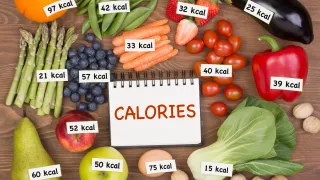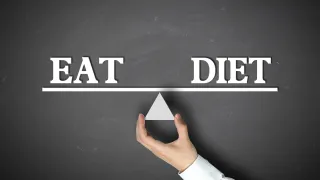
Journey Too Loose Weight
Healthy weight loss involves making sustainable lifestyle changes rather than quick fixes. It requires time and dedication. Most of us eat salad once and expect results the next, but the reality is way different. Discipline is a huge part of the process, and if you want to reach your goal, prepare to give some time.
There is no recipe for losing weight, and the process works differently for every individual so , so try a few things to see what works best for you. Start with small changes in your life. This way, your body will adapt to the changes gradually and will not get shocked by to drastic changes.
Here are some tips to help you on your journey to a healthier weight:
Balanced Diet: Avoid processed foods high in sugar and fat, instead fill your plate with nutrient-dense foods that provide essential vitamins, minerals, and fibreer. Incorporate a variety of fruits and vegetables in vibrant colors, lean proteins like chicken, fish, tofu, or beans, whole grains such as quinoa, brown rice, or oats, and healthy fats like avocados, nuts, and olive oil.
Caloric Intake: The number of calories needed for weight loss varies between males and females. On average, adult women need about 2000 calories per day, while adult men require around 2500 calories per day. To lose weight, a gradual reduction in calories is recommended, aiming for a deficit of 500-600 calories per day.
Physical Activity: Regular exercise is essential for weight loss. Aim for a mix of cardiovascular exercises (like running, cycling, or swimming) and strength training to build muscle and boost your metabolism. Aim to engage in at least 150 minutes of moderate-intensity aerobic activity or 75 minutes of vigorous-intensity activity each week.
Hydration: Stay well-hydrated by drinking plenty of water throughout the day. Sometimes, thirst can be mistaken for hunger, leading to unnecessary calorie consumption.
Meal Planning: Plan your meals ahead of time to ensure that you have healthy options readily available. This can help you resist the temptation of fast food or unhealthy snacks when hunger strikes. Keep an eye on portion sizes to prevent overeating. Using smaller plates, measuring serving sizes, and being mindful of your hunger cues can help you regulate your food intake and prevent unnecessary calorie consumption.
Practice Mindful Eating: by paying attention to your food choices, savouring each bite, and listening to your body's hunger and fullness signals. Avoid distractions while eating, such as watching TV or scrolling through your phone, to prevent mindless overeating. Don’t forget, while you trying to eat healthy, it doesn’t mean you have to stop yourself completely from having some sweet treat, reward yourself for your hard work but within the limits of course. Like everywhere in life in your diet you also need balance.
Healthy Recipe - Quinoa Salad: Here's a quick and healthy recipe for a delicious quinoa salad that is nutritious and low in calorie. Regarding to healthily losing weight, it's important to adopt sustainable habits that promote overall well-being. Here are some specific strategies to help you achieve your weight loss goals:
Ingredients:
1 cup quinoa
2 cups water or vegetable broth
1 red bell pepper, diced
1 cucumber, diced
1/4 cup fresh parsley, chopped
1/4 cup feta cheese, crumbled
2 tablespoons olive oil
1 tablespoon lemon juice
Salt and pepper to taste
Instructions:
Rinse the quinoa under cold water. Bring the water or broth to a boil in a saucepan, add quinoa, cover, and simmer for 15 minutes.
Fluff the quinoa with a fork and let it cool. Combine quinoa, bell pepper, cucumber, parsley, and feta cheese in a large bowl
In Whisk together olive oil, lemon juice, salt, and pepper in a small bowl pour over the quinoa salad and toss to combine.
Serve chilled and enjoy!
This and many more healthy recipes you can find on NHS page
Remember, weight loss is a slow process that requires patience and consistency. Consult with a healthcare provider or a nutritionist before significantly changing your diet or exercise routine.
Love It Lose It Team 💛
"Embrace the Sacred Pact: Nurture Your Body, Witness Its Care in Return"

To Feel Good Does Not Mean You Need To Be Skinny, It Means You Need To Be Healthy And Happy
To Feel Good Does Not Mean You Need To Be Skinny, It Means You Need To Be Healthy And Happy
If you’re looking to lose weight, you don’t need to make drastic sacrifices. With Lose It Love It, you can live a healthier life without going through any unnecessary hardships.
All you need is consistency and dedication. With us, you can achieve your goals without making any drastic sacrifices.
Remember that perfection does not exist and is not attainable.
So when someone inevitably has an imperfect eating day or “falls off the wagon,” they stop their healthy efforts altogether
Instead, focus on making small changes consistently over time and dedicate yourself to achieving your goals
The Importance Of Eating Healthy: Nourishing Your Body for Optimal Well-being
In today's fast-paced world, it's easy to overlook the significance of maintaining a healthy diet. However, our food plays a vital role in shaping our overall well-being. This blog post will explore why eating healthy is crucial for our bodies and how it can positively impact our lives.
A balanced and nutritious diet gives our bodies the essential nutrients to function optimally. Fresh fruits and vegetables, whole grains. Lean proteins and healthy fats all contribute to a well-rounded diet. These nutrients fuel our cells, support growth and repair, boost our immune system, and promote overall vitality.
A healthy diet can significantly reduce the risk of chronic diseases. Consuming various nutrient-dense foods, such as leafy greens, berries, and legumes, can help lower the risk of heart disease, hypertension, diabetes, and certain types of cancer.
Eating a balanced diet can assist you in weight management and promote a healthy body composition. Focusing on whole foods and portion control can supply our bodies with the necessary nutrients while avoiding excessive calorie intake. Combined with regular physical activity, a healthy diet can help maintain a healthy weight and reduce the risk of obesity-related conditions.
The impact of our healthy diet extends beyond physical health and influences our mental well-being. Research suggests that certain nutrients, such as omega-3 fatty acids, B vitamins, and antioxidants, support cognitive function and mood regulation. Nourishing our bodies with these nutrients promotes mental clarity, focus, and emotional balance.
Best Ways To Lose Weight
Get active for 150 minutes a week – you can break this up into shorter sessions.
Aim to get your 5 A Day – 80g of fresh, canned or frozen fruit or vegetables count as one portion.
A week, aim to lose 1 to 2 lbs, or 0.5 to 1kg.
Read food labels – products with more green colour coding than amber and red are often a healthier option.
Swap sugary drinks for water – if you do not like the taste, add slices of lemon or lime for flavour.
Cut down on food that's high in sugar and fat – start by swapping sugary cereal for wholegrain alternatives.
Share your weight loss plan with someone you trust – they can help motivate you when you have a bad day.

What Is The Correct Way To Calculate My Calorie intake?
You need energy from calories for your body to work correctly. Your body uses this energy to function properly. To stay around the same weight, your body's calories should be the same as the amount of calories you eat and drink. Your body weight may change if you use the same calories as you eat and drink.
For example, you'll be less likely to lose weight if you eat and drink more calories than you use. This is because your body stores the extra energy as fat. You'll likely lose weight if you eat and drink fewer calories than you use. This is because your body uses its stored fat for energy.
As a guide:
An average man needs 2,500kcal a day
An average woman needs 2,000kcal a day
Check if you are maintaining a healthy weight by calculating your BMI here.

What To Avoid When Losing Weight?
Do not stock unhealthy food – popcorn, fruit, and rice cakes can be healthier alternatives.
Do not skip meals – you might end up snacking more because you feel hungry.
Do not finish your plate if you're full – you can save leftover food for the next day.
Keep the balance in your diet, If you crave for piece of cake, have it, but compensate for that with a healthy meal later on.
Balance is very important!

What Are Physical Activity Guidelines For Adults Aged 19 to 64
Adults should do some physical activity every day.
Exercising just once or twice a week can reduce the risk of heart disease or stroke.
Speak to your GP first if you have not exercised for some time or if you have medical conditions or concerns. Make sure your activity and its intensity are appropriate for your fitness.
Adults should aim to:
Do strengthening activities that work all the major muscle groups (legs, hips, back, abdomen, chest, shoulders, and arms) at least two days a week.
Do at least 150 minutes of moderate-intensity activity a week or 75 minutes of vigorous activity weekly.
Spread exercise evenly over 4 to 5 days a week or every day.
Reduce time spent sitting or lying down and break up periods of not moving with some activity.
You can also achieve your weekly activity target with Several short sessions of very vigorous-intensity activity, a mix of moderate, vigorous, and vigorous-intensity activity.

In the realm of human experiences, few journeys are as poignant and challenging as the one through dementia. It is a path shrouded in a mist that obscures memories, blurs identities, and tests the strength of both individuals and their loved ones. Join us as we embark on a metaphorical exploration of this labyrinthine landscape, seeking understanding, compassion, and hope amidst the shadows.
This practical Guidebook is a guide for everyday interaction with dementia patients. Concrete tips on how to resolve conflicts and basic information on the course of the disease guide relatives and caregivers to the right action in each situation.
(Read more HERE)

Exercise
How many of you go to the gym versus exercising at home, or maybe you want to start at home but are not sure what exactly to do? There are people who would rather work on their own in the comfort of their homes instead of going to the gym and sweating in front of a bunch of other people. If you are one of them here is a quick exercise routine that you could use it, this is not exercise to grow muscle just to keep your self fit and healthy.
Warm-up (5-10 minutes):
Start with a quick warm-up to prepare your body for exercise. You can do activities like jumping jacks, high knees, or walking around your house.
Strength Training (3 times a week):
Bodyweight squats: 3 sets of 15 repsPush-ups (can start on your knees if needed):
3 sets of 10 reps
Plank: Hold for 30 seconds to 1 minute
Bodyweight lunges: 3 sets of 12 reps per leg
Cardiovascular Exercise (3-5 times a week):
Jumping jacks: 3 sets of 30 seconds
Dancing to your favourite music: 15-20 minutes
Jump rope: 3 sets of 1-minute
Running in place: 3 sets of 1 minute
Flexibility and Stretching (daily):
Stretch your major muscle groups for 10-15 minutes daily to improve flexibility and prevent injury. Focus on hamstrings, quadriceps, calves, shoulders, and back.
Cool Down (5-10 minutes):
Finish your workout with a cool down to bring your heart rate back to normal. You can do some light stretching or yoga poses to help your muscles relax.
Remember to listen to your body and modify exercises as needed. Consistency is key, so try to stick to your routine and gradually increase intensity as you get stronger. Additionally, consider incorporating activities you enjoy to make your workouts more fun and sustainable.
READ MORE OF OUR BLOGS HERE
Subscribe And Be The First To Know The Update
© 2024 Melada - All Rights Reserved,
Disclaimer: The publisher may earn small commissions through the affiliate links.
meladapublishing@gmail.com


